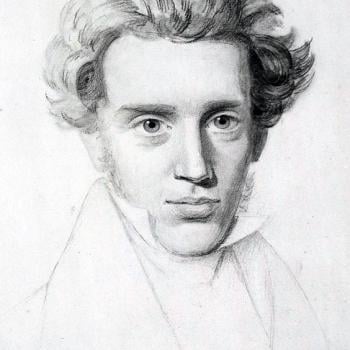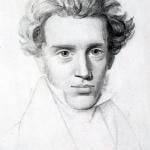Is the mind a mirror, reflecting the objective world, or a lamp, shining our inner light upon the outer darkness? Those two metaphors reflect the difference between the classical and the romantic views of art, knowledge, and God.
The Wall Street Journal recently published a column by Emily Finley entitled The Real Reason Young People Are Anxious, with the deck, “Technology is merely a symptom. The problem is the romantic corruption of imagination, and the solution lies in classic books and art.”
She argues that the reason young people today are “less resilient and more anxiety-prone” is not so much their addiction to technology or their coddling by their parents. These and related mental-health problems, she says, are only symptoms. The deeper issue is the “romantic corruption of imagination.” And imagination, far more than reason or logic, colors our whole view of life. She writes,
A malformed imagination is romantic. It is unbalanced and lacks proportion. It is oriented by an unrealistic, even utopian, vision of progress and a world altogether changed through human effort. This dreamy vision of a New Earth is made possible by the belief that “man is a naturally good being,” as the archromantic Jean-Jacques Rousseau declared in the 18th century. We must clear away the traditional religious and social norms hindering prosperity and instead heed the “cry of nature,” Rousseau argued. . . .
Having been told romantic tales from birth about their natural perfection and endless potential, young people can hardly be blamed for their unrealistic expectations. The modern childhood education is one great building up of the idea that, without any special effort, every child is going to be something extraordinary, and with their help, the world will be a better place. This is the romantic imagination’s manic side.
As these young people discover that they are, in fact, nothing very special, and that the world doesn’t appear to be improving despite their political crusading, they enter a period of melancholic despair. This is the romantic imagination’s depressive side.
As a result, “Without religious beliefs, traditions or standards to connect them with permanent things, young people feel tremendous anxiety about who they are and how they should find meaning.” Finley recommends a “total detox of the imagination” with the help of classic literature.
Yea, verily, say I. She makes a good case for classical education, as opposed to the dominant progressive education that dominates our schools, which can indeed be traced right back to the romanticism of Rousseau.
Her piece reminded me, though, of a book I read back in grad school by M. H. Abrams entitled The Mirror and the Lamp. First published in 1953 and considered one of the last century’s greatest works of literary criticism, Abrams’ book offers two metaphors that can be applied far beyond literature.
The classical imagination assumes that the imagination, art, the mind, and the soul are mirrors designed to reflect objective reality. As Shakespeare says in Hamlet, “the purpose of playing [that is, of plays], whose end, both at the first and now, was and is, to hold as ’twere the mirror up to nature: to show virtue her feature, scorn her own image, and the very age and body of the time his form and pressure.”
When we see a play, especially a Shakespeare play, we see what virtue and its opposite looks like, making us aware of truths around us that we often don’t notice and helping us understand the “form and pressure” both of Shakespeare’s time and our own. This also applies to the other arts, which take reality as their content and follow the objective principles of aesthetics that evoke a sense of beauty.
By extension, knowledge for the classical mind comes from the outside, as we seek to conform our minds to reality. Religion too is a matter of objective truth and a living God outside ourselves who reveals Himself to us and whose character we seek to reflect.
The romantic imagination, on the other hand, assumes that the imagination, art, the mind, and the soul, are lamps, designed to shine a light that comes from the self onto the darkness of reality.
Romantics see the imagination as expressions of the inner self. Art is a creation, not a reflection, in which we see the artist’s personality, emotions, and genius. Knowledge is a projection of the mind onto the world, giving it a meaning that it would not have otherwise. God lives within the soul, so that spiritual illumination comes from going inside oneself, and the moral life has to do with imposing one’s enlightenment on the meaningless world.
This difference between the classic and the romantic, the mirror and the lamp, explains why older art tends to be representational and modern art tends to be solely the expression of the artist. Classical art can be non-representational too, but it will tend to depict aesthetic designs in accord with objective principles such as harmony, symmetry, and mathematical order. Romantic art can be representational, but it will tend to be charged with the artist’s emotions about what is being represented.
Science is a mirror, studying nature carefully so as to understand it; technology is a lamp, imposing the human mind and will onto nature so as to make it do our bidding.
Abram’s metaphor apply in ways that go far beyond what he takes up in his book, which is the test of a good analytical tool. The classical approach to knowledge, whether by a philosopher or a theologian or a scientist, is that of a mirror, with mental truth mirroring the truth of the objective world. Postmodern constructivism, though, which sees truth as a construction of the mind takes the romantic lamp to new extremes.
Photo by tomris : https://www.pexels.com/photo/round-mirror-on-stand-and-gas-lamp-17952288/ via Pexels, Public Domain













